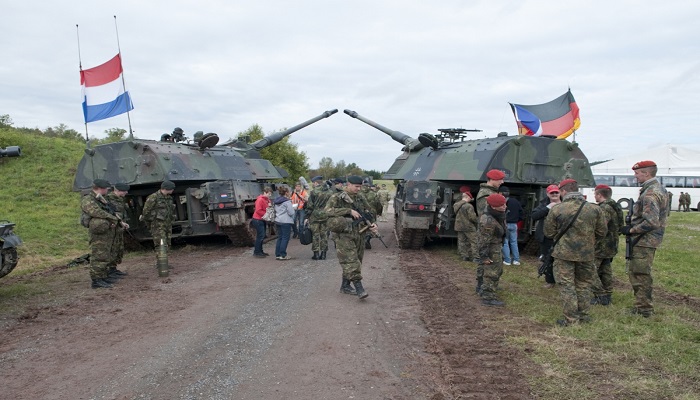NATO has called on the Netherlands to significantly increase its defense budget, requesting an additional €16 to €19 billion, which would bring the country’s defense spending to 3.5% of its Gross Domestic Product (GDP).
This proposal comes as part of NATO’s broader strategy to strengthen its defense capabilities, especially in light of rising threats, including Russia’s aggressive actions in Ukraine.
Ruben Brekelmans, the Dutch Minister of Defense, confirmed this request to the Dutch Parliament, acknowledging the substantial financial implications. He also emphasized the importance of strengthening national and NATO defense preparedness.
The decision now rests with the Dutch government, which will determine how to respond to the alliance’s request.
NATO’s military planners have forecasted the need for increased defense spending to maintain the alliance’s security and readiness.
Spain Commits to Hitting NATO Defense Spending Target by 2025
The growing threat from Russia, compounded by global instability, has led NATO to revise its defense targets. While NATO has long recommended that its member nations allocate at least 2% of their GDP to defense, the Netherlands has only recently begun meeting this target.
Dick Schoof, the current Prime Minister of the Netherlands, has been a strong advocate for higher defense budgets and is expected to present a plan at the upcoming NATO Summit in The Hague to raise the target to 3.5%. Additionally, an extra 1.5% will be earmarked for defense-related expenditures, such as infrastructure, bringing the total defense budget to 5% of GDP.
This aligns with demands previously made by U.S. President Donald Trump, who stated that NATO members must increase their contributions or risk undermining the alliance’s collective security.
Currently, the Netherlands spends approximately €22 billion on defense, but to meet NATO’s new requirements, the country would need to increase its defense budget to €40 billion over the coming years. This increase is seen as essential not only to bolster national defense but also to fulfill the Netherlands’ obligations as a NATO member and host for the upcoming NATO Summit.

Part of the proposed defense expansion includes enhancing air defense capabilities, artillery, and logistical support systems such as large transport planes. The Netherlands also faces the additional task of protecting its Caribbean territories, including the Antilles, as part of its NATO commitments.
To meet the enhanced defense spending targets, the Netherlands will also require a substantial increase in military personnel. An additional 17,000 to 18,000 staff members will be needed, but the country is currently facing a tight labor market, which could make recruitment challenging.
Dutch govt postpone Qatar trade mission over living conditions
While defense spending has become a pressing issue, the proposed increase has sparked division within the Dutch political landscape. The right-wing PVV (Party for Freedom) and BBB (BoerBurgerBeweging) have expressed opposition to the significant increase, citing concerns over the impact on domestic spending and the economic burden.
On the other hand, the ruling VVD (People’s Party for Freedom and Democracy) argues that, as the host nation for the NATO Summit, the Netherlands cannot afford to lag behind its NATO partners in defense commitments.
The VVD’s stance is echoed by the National Security Council (NSC), which has supported the proposed increase, underlining the need for the Netherlands to contribute effectively to NATO’s security strategy.
The Dutch government’s decision on how to handle NATO’s request will have far-reaching implications for the country’s defense strategy and its role within the alliance. As NATO prepares for future challenges, the Netherlands faces the delicate balance of increasing defense spending while addressing political, economic, and logistical hurdles.
The Hague will prohibit advertisements for fossil fuels from January
The outcome of this decision will be closely watched by NATO members and global allies alike, as the alliance moves toward a more robust defense posture in the face of growing global instability.
The next few months will be pivotal as the Dutch government works to chart a course for meeting NATO’s defense expectations while ensuring the security of its citizens and maintaining its international commitments.



